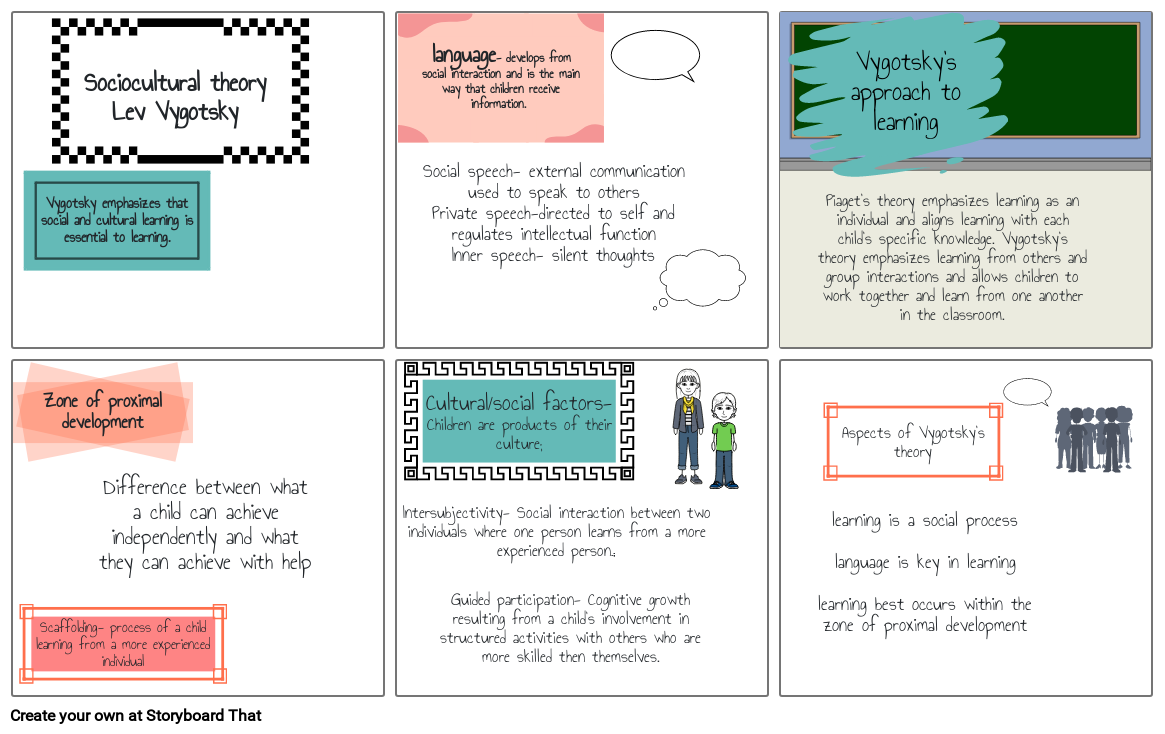Vygotsky

Testo Storyboard
- Vygotsky emphasizes that social and cultural learning is essential to learning.
- Sociocultural theoryLev Vygotsky
- Social speech- external communication used to speak to othersPrivate speech-directed to self and regulates intellectual functionInner speech- silent thoughts
- language- develops from social interaction and is the main way that children receive information. 
- Vygotsky's approach to learning
- Piaget's theory emphasizes learning as an individual and aligns learning with each child's specific knowledge. Vygotsky's theory emphasizes learning from others and group interactions and allows children to work together and learn from one another in the classroom.
- Zone of proximal development
- Scaffolding- process of a child learning from a more experienced individual
- Difference between what a child can achieve independently and what they can achieve with help
- Intersubjectivity- Social interaction between two individuals where one person learns from a more experienced person.;
- Cultural/social factors-Children are products of their culture;
- Guided participation- Cognitive growth resulting from a child's involvement in structured activities with others who are more skilled then themselves.
- learning is a social process language is key in learninglearning best occurs within the zone of proximal development
- Aspects of Vygotsky's theory
Oltre 30 milioni di storyboard creati

